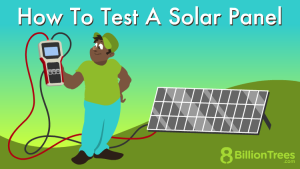How to Help Cramps Naturally?
Menstrual cramps, also known as dysmenorrhea, are a common complaint among many women. Cramps can range from mild to severe, causing discomfort and even interfering with daily activities. While over-the-counter medications are often used for pain relief, there are also many natural ways to help alleviate cramping during your period.
Understand the Cause of Cramps
Cramps occur when the uterus contracts to expel its lining during menstruation. The pain is a result of prostaglandins, chemicals that are produced in the lining and make the muscles of the uterus contract. Higher levels of prostaglandins are associated with more severe cramps. The contracting uterus also momentarily cuts off blood supply to the muscle tissues of the uterus, which also contributes to cramps.
Apply Heat
One of the most effective natural remedies for cramps is applying heat to the lower abdomen. Heat helps relax muscles and boosts blood flow, which reduces pain and spasms. Take a warm bath, apply a heating pad to the lower abdomen and back, or use a hot water bottle. Be sure to avoid burning yourself. Apply heat for at least 15-20 minutes for best results.
Massage the Lower Abdomen
Massaging the lower abdomen can help relax the muscles in the uterus and relieve cramping. Use light, circular motions, and medium pressure. Start above the pubic bone and work your way up to the belly button. A massage with essential oils like lavender, clary sage, rose, or chamomile can also be very soothing. Have a partner massage your lower back too.
Take Anti-Inflammatory Herbs and Supplements
Certain herbs have anti-inflammatory properties that can help calm the uterine muscle spasms that cause cramps. Herbs like chasteberry, ginger, and turmeric are good options. Supplements that provide omega-3 fatty acids like fish oil can help reduce inflammation as well. For quick relief, try a cramp-relief herbal tea with herbs like dong quai, Jamaica dogwood, and red raspberry leaf.
Cut Back on Caffeine and Alcohol
Beverages containing caffeine, like coffee, tea, and soda, are diuretics that can contribute to dehydration and worsen cramps. Alcohol can increase bleeding and inflammation, also exacerbating cramps. Avoid these types of drinks before and during your period to minimize cramping. Load up on water instead to stay hydrated.
Include Foods Rich in Vitamins and Minerals
Certain vitamins and minerals have been found to help reduce menstrual cramps, especially magnesium and calcium. Load up on foods containing these nutrients throughout your cycle. Great sources include dark leafy greens, beans, lentils, nuts, seeds, whole grains, yogurt, and fish. Vitamin B1 may also help, so eat pork, peanuts, oranges, eggs, seeds, and whole grains.
###Manage Stress
When you’re stressed out, your body produces more of the chemicals that cause menstrual cramps. Practicing stress-relieving activities can help you feel more relaxed and less crampy. Try yoga, meditation, deep breathing, listening to calming music, getting a massage, or soaking in a hot bath. Getting moderate exercise can help reduce stress too.
Get Enough Sleep
Not getting adequate sleep can increase inflammation and worsen menstrual cramps. Sleep deprivation leads to increased production of prostaglandins that make cramps more painful. Aim for 7-9 hours of quality sleep per night, especially in the days leading up to and during your period. Having healthy sleep habits makes a big difference.
Consider Supplements
For moderate to severe cramps that don’t get better with natural remedies, consider taking an over-the-counter supplement specifically for menstrual cramps. Look for supplements containing cramp bark, wild yam, PMS Vitex, or concentrated ginger. Some supplements combine herbs, minerals, and vitamins for multidimensional cramp relief. Always follow dosage directions carefully.
When to See a Doctor
While cramps are a common part of menstruation, severe or debilitating cramps may be a sign of an underlying disorder. See your gynecologist or health care provider if:
- Cramps don’t improve with over-the-counter medications and natural remedies
- Cramps are getting progressively worse
- Menstrual cramps routinely cause you to miss work, school, or normal activities
- Cramping is accompanied by heavy bleeding, dizziness, or fainting
Your doctor can check for any underlying problems and guide for finding relief from severe menstrual cramps.
Frequently Asked Questions About Cramps
What’s the difference between menstrual cramps and PMS cramps?
Menstrual cramps occur during a woman’s period and are caused by contractions of the uterus. PMS cramps happen in the days before a period and are caused by prostaglandin production and other hormonal fluctuations.
At what age do most girls start getting cramps?
Most girls start having cramps within a year or two of getting their first period, typically between the ages of 10 and 15. Cramps are very common during adolescence.
Can cramps occur even when you don’t get your period?
Yes, it’s possible to have cramps even if menstruation doesn’t occur or is very light. This can happen when the uterus contracts to shed its lining, but little to no blood makes it out of the body.
Why do some women get cramps and others don’t?
Some women have higher levels of prostaglandins and increased uterine contractions. Structural problems in the uterus, endometriosis, fibroids, and other conditions can also increase cramping for some women. Genetics play a role too.
Can cramps be a sign of pregnancy?
Cramping in early pregnancy is usually mild compared to menstrual cramps and is not accompanied by bleeding. It’s typically caused by the uterus stretching and implantation. Severe cramping with bleeding may indicate an ectopic pregnancy.
Conclusion
While many women suffer from uncomfortable cramps around their periods, there are many natural ways to find relief without relying solely on medications. Applying heat, massage, taking anti-inflammatory herbs, and getting enough sleep can all help relax the uterus and calm contractions and cramps. Reducing stress is key, as is avoiding caffeine and alcohol which can worsen cramps. Severe or debilitating cramps may require medical attention to determine if an underlying disorder is present. With some patience and persistence finding natural cramp relief, most women can say goodbye to cramping and enjoy a much more comfortable period.




